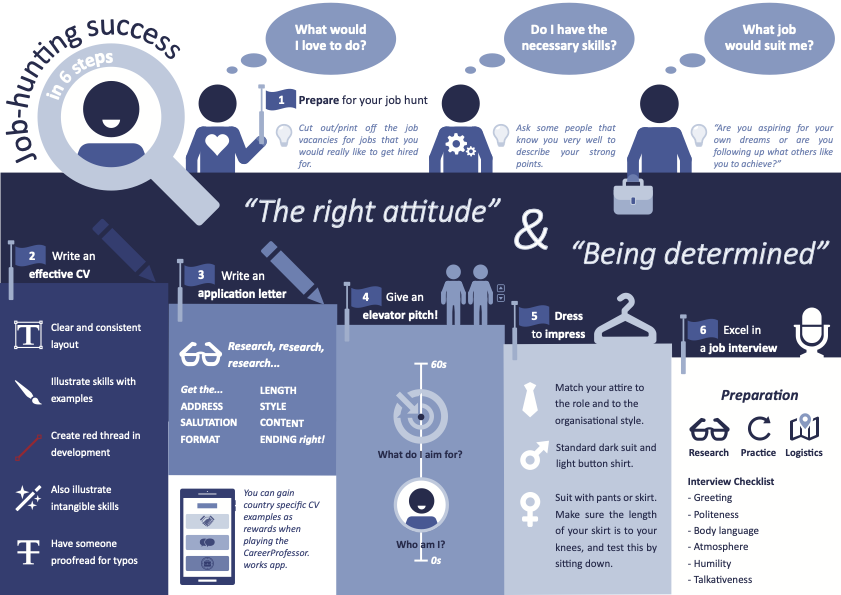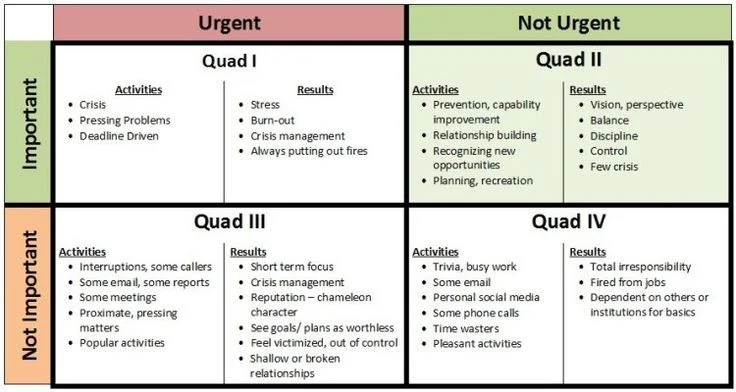
Mastering Organizational Skills: Your Key to Efficiency and Career Growth
Balancing multiple careers can be overwhelming at times, but one thing that helps me stay on top of everything is my organizational skills. As a freelance writer and life coach, staying organized is not just a nice-to-have skill—it’s absolutely essential. Organizational skills allow me to manage my time effectively, meet deadlines, and maintain my peace of mind.
But it’s not just about keeping things tidy—these skills are also a powerful tool to help you succeed in your job search, land that promotion, or even thrive in your current role. The good news is, you can improve these skills and use them to stand out in your job hunt.
What Are Organizational Skills?

Organizational skills are essentially the tools you need to manage your time, resources, and mental space effectively. These skills help you stay on track, keep everything in its place, and reduce stress by making sure everything has a system and structure. They’re what help you prioritize tasks, make the most of your time, and deliver the best work without feeling overwhelmed.
The goal is simple: use your organizational skills to streamline your tasks and optimize results. Whether it’s arranging your workspace or managing large projects, organizational skills help you stay focused and productive.
5 Essential Organizational Skills for the Workplace

Here are five key organizational skills that are crucial for any job, along with tips on how to improve them:
1. Physical Organization
An organized physical workspace is one of the best ways to boost productivity and reduce stress. A cluttered desk can be a constant source of frustration, while a clean, organized environment helps you stay focused and calm.
To get started, declutter your space. Ask yourself: “What items are essential to my work?” Get rid of anything that’s just taking up space. Then, create designated spots for everything—papers, pens, books—so that everything is easy to find and put away. A rule of thumb: The easier it is to put something back where it belongs, the more likely you are to keep it organized.
You can even schedule a quick tidy-up session at the end of each day to maintain a clutter-free workspace.
2. Digital Organization

In today’s world, much of our work is digital. Disorganized files, lost emails, or chaotic project management tools can waste precious time. Digital organization involves categorizing emails, files, and other digital resources in a way that’s easy to navigate.
Start by organizing your email inbox. Create folders or labels for different projects or topics, and use filters to prioritize important messages. You can also organize files on your computer or cloud storage by naming and labeling them clearly. For team projects, use digital tools like Google Docs or project management apps like Trello or Asana to keep things running smoothly.
Set aside time each week to maintain your digital organization system, and back up important files regularly to avoid chaos later.
3. Planning
Effective planning is essential for both short-term and long-term productivity. It’s about breaking down tasks and figuring out how to accomplish them in the most efficient way possible. Whether you’re managing a single project or coordinating multiple teams, planning helps ensure everything gets done on time.
To improve your planning skills, start by outlining your goals and reverse-engineering the steps needed to achieve them. For large projects, break them down into smaller tasks, set deadlines, and assign responsibilities. If you’re working with a team, make sure everyone knows their role and deadlines. Don’t forget to schedule regular check-ins to keep everyone on track.
4. Time Management

Time management is all about prioritizing tasks and staying on top of deadlines. It helps you avoid procrastination, manage unexpected interruptions, and meet your goals more effectively.
A good way to manage your time is to create a to-do list and rank tasks based on urgency and importance. Once you have your priorities sorted, create a schedule that breaks down the day’s tasks into manageable chunks. Be realistic about how long tasks will take and leave some buffer time for unplanned events.
To take your time management skills to the next level, consider using time-tracking apps to monitor how long each task takes. This can help you better estimate how long tasks will take in the future and improve your scheduling.
5. Communication

Strong communication is often overlooked when it comes to organizational skills, but it’s essential. Good communication helps ensure that everyone understands expectations, timelines, and responsibilities. It also prevents misunderstandings that can lead to confusion or delays.
To improve communication, focus on listening actively. Try to understand what others are saying without jumping to conclusions or formulating your response too quickly. When you’re the one speaking, be clear, direct, and concise to avoid any confusion. If you’re managing a team, take the time to explain your plans in detail and check in regularly to ensure everyone is on the same page.
How to Showcase Your Organizational Skills During Your Job Hunt
Since organizational skills are so important in the workplace, it’s crucial to showcase them when applying for jobs. Here’s how you can do it:
On Your Resume:
Instead of just listing organizational skills under the “skills” section, incorporate them into your work experience. Use bullet points to provide context for how you’ve used these skills in the past. For example:
- Developed a digital filing system that streamlined access to key documents, saving the team 10+ hours a week
- Managed project timelines, assigned tasks, and organized resources, resulting in the successful completion of X project on time
During the Interview:

Don’t just tell the interviewer that you’re organized—prove it by sharing specific examples. For instance, when asked about your strengths, talk about how your planning and time management skills helped you achieve a major goal or meet a tight deadline.
Use every interview question as an opportunity to show off your organizational skills. Be prepared to share detailed examples that demonstrate how these skills have helped you succeed in past roles. For example, describe how you managed a complex project by breaking it down into tasks, setting deadlines, and coordinating with different teams.
FAQs
1. How can I improve my organizational skills?
Start by decluttering your workspace and setting up systems for both physical and digital organization. Use tools like project management apps to stay on track, and break tasks into manageable steps. Don’t forget to prioritize and schedule your tasks effectively.
2. What are the best tools for organizing work?
Some popular tools for organization include project management platforms like Trello, Asana, and Monday.com. For digital organization, use cloud storage services like Google Drive or Dropbox, and email management tools like filters and labels in Gmail.
3. How can I demonstrate my organizational skills in a job interview?
Share specific examples of how you’ve used your organizational skills in past roles to improve productivity, meet deadlines, or streamline processes. Practice explaining these examples clearly to show your value as a well-organized candidate.
4. Why are organizational skills important for career growth?
Strong organizational skills allow you to manage your workload efficiently, meet deadlines, and handle multiple projects. These abilities make you more productive and demonstrate your value to employers, helping you advance in your career.
5. Can organizational skills be learned?
Absolutely! Organizational skills can be developed through practice, trial and error, and learning from others. By setting up systems, tracking your time, and refining your methods, you can become more organized and improve your performance at work.
Conclusion: Organize Your Way to Success
Organizational skills are crucial for anyone who wants to perform at their best in the workplace. Whether it’s keeping your workspace tidy, planning your day, managing your time, or communicating effectively, these skills allow you to work smarter, not harder. The great thing is that organizational skills can be developed and improved with practice, and once you master them, they will serve you throughout your career.
By focusing on improving your organizational skills, you’ll not only boost your productivity but also become a more valuable asset to any team. So start working on these skills today, and you’ll be well on your way to achieving your career goals!
